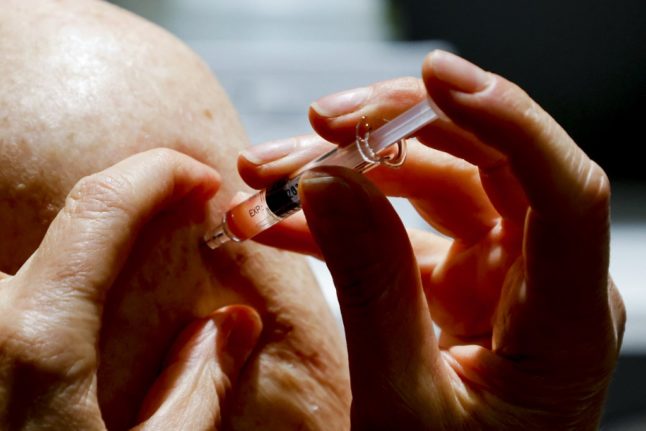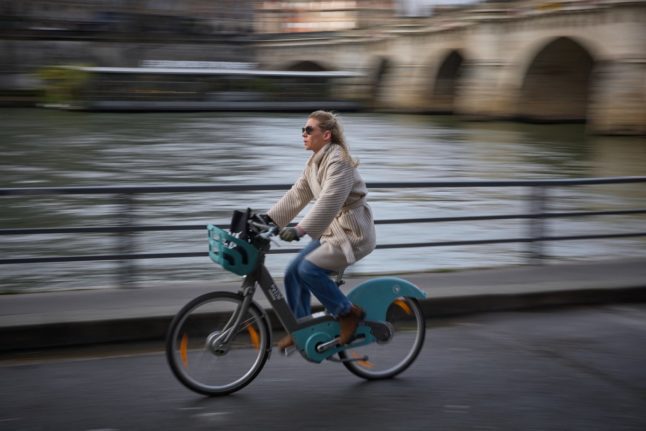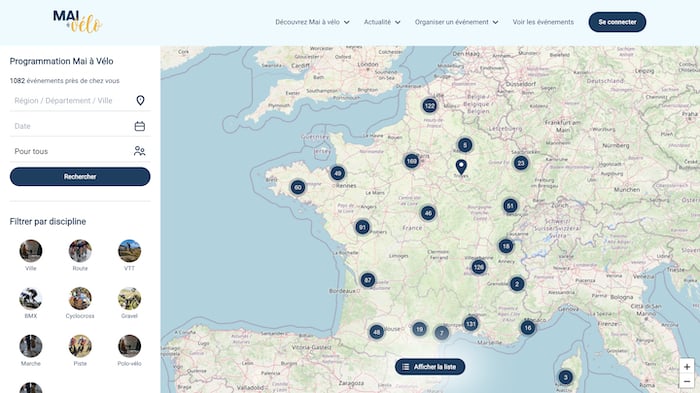France’s annual flu vaccine campaign will officially get under way on October 18th this year – and medical experts have warned that this year’s season may be a bad one amid fears of “vaccine apathy”.
When, where and how to get flu shots and Covid boosters in France this autumn
Immunologist Alain Fischer, who chaired France’s Conseil d’orientation de la stratégie vaccinale throughout the Covid-19 pandemic said that the high number of flu cases in Australia and the southern hemisphere in its winter were “a warning sign” that this winter’s flu, coupled with rising cases of Covid-19, could lead to a sharp rise in hospitalisations again in the winter.
“For two years, influenza has been kept at bay, thanks to the barrier measures we have put in place against Covid,” he told Le Parisien.
“This year, it will be difficult to maintain the same level of protection: masks, distancing, intensive hand washing … Faced with this relaxation, there is a serious risk of flu epidemic.”
Between two million and six million people contract flu every winter in France. The infection is responsible for between 4,000 and 6,000 deaths every year, usually among people aged 65 and over. But in ‘bad’ flu years, that mortality figure can rise rapidly.
READ ALSO When, where and how to get flu shots and Covid boosters this autumn in France
The country, meanwhile, is at the start of what is being described as an “eighth wave” of Covid, and the Haute Autorité de santé recommends the eligible, vulnerable people ensure they are vaccinated against both viruses as early as possible. “A Covid-flu cohabitation is not a good thing,” Fischer said. “It is synonymous with a very high number of hospitalisations.
“Hence the objective of two strong vaccination campaigns – Covid and flu – especially for the most vulnerable.”
“The double injection is very good, and practical for patients. But I think that we should not wait, especially vulnerable people. It is a mistake to think that you will get your Covid booster when the flu vaccine is here – the Covid jab should not be delayed.”
Currently less than 40 percent of people eligible for a fourth Covid vaccine have received their latest dose.
Dual-strain Covid-19 vaccines designed to combat both delta and omicron variants will be available in France from October 3rd.
READ ALSO France approves new vaccines for Covid Omicron sub-variants
“It is quite possible to get your Covid injection in early October and flu vaccine in late October – you will need both anyway,” Fischer said.
The Haute Autorité de Santé recommends influenza vaccination for the following groups:
- people aged 65 and over;
- people with chronic diseases;
- pregnant women;
- people suffering from obesity (BMI equal to or greater than 40 kg/m 2 );
- Infants under 6 months at risk of serious influenza;
- Families and others close to immunocompromised people;
- home help workers caring for vulnerable individuals.
For anyone in these groups, the flu vaccine is 100 percent covered by health insurance and delivered free of charge to the pharmacy, on presentation of a voucher.




 Please whitelist us to continue reading.
Please whitelist us to continue reading.
Member comments